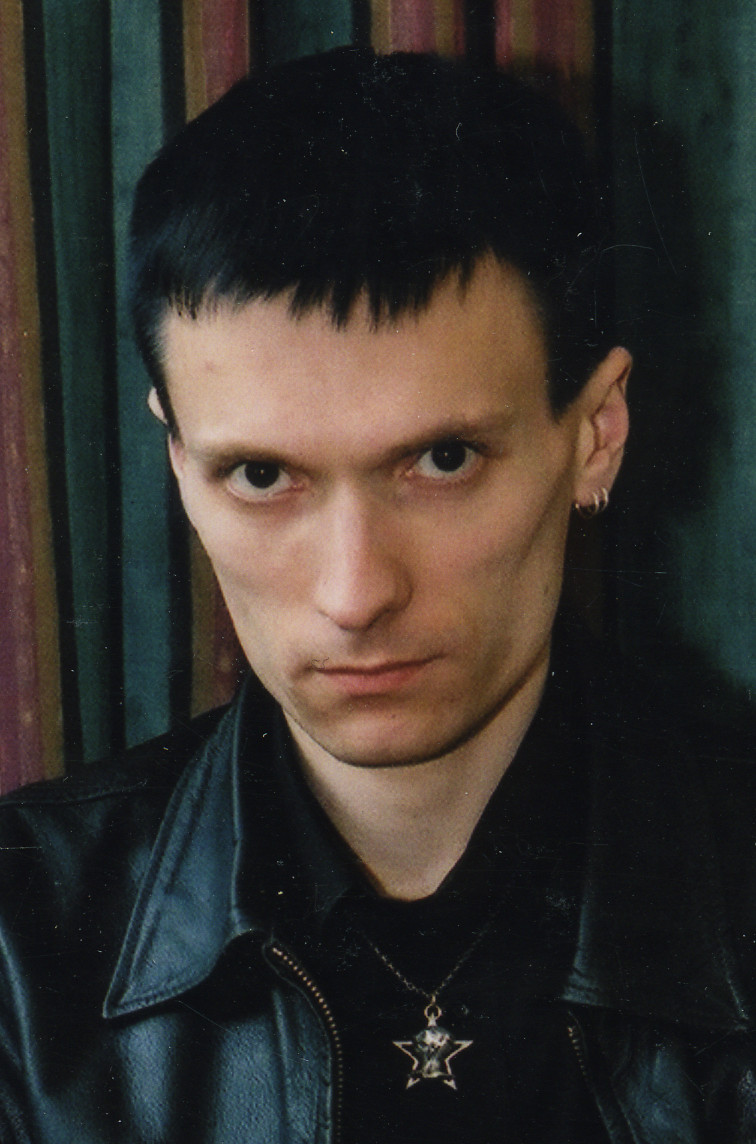
fs
fs (given name Indrek Mesikepp, b. 17. X 1971) is a poet and editor.
He grew up in Kallaste and Tartu. In 1989 he graduated Secondary School number I in Tartu, and the same year made his debut in print as a poet in the school almanac. In 1999 he graduated from the University of Tartu specialising in art history. After short-term jobs (in the Estonian State Archive and elsewhere), since 2000 Mesikepp has worked as an editor on the literary journal Looming. From 2021 he is the editor-in-chief of Looming. Beside his editorial work he has been a broadcaster on IDA Raadio and Raadio 2, has organised musical events and performed as a DJ. Musical backgrounds (groups such as The Sisters of Mercy, Joy Division) are important for his activity, though not necessarily in creating poetry.
Mesikepp published his first two poetry collections under the pseudonym François Serpent; since his third book 2004 (2004) he has styled himself as fs. In addition to new collections of poetry, in 2012 he published a selection, 100% fs.
His first volume of poetry, Ka Jumal on inimene (‘God Is Human Too’, 1997) is dominated by classically formed rhyming verse, bearing a mannered and parodical role-play. More interest from the critics in his work came with Valgete kaantega raamat (‘Book With White Covers’, 2000).
The collection 2004, which brought with it a change of pseudonym, also signalled a new period in the author’s work. From then on the proportion of free verse increases, there is less metaphor, while at the same time fs continues with his characteristic recurring imagery. Here he has abandoned his previous mannerisms, presents a more direct involvement with daily life and social issues, and the poetic ‘I’ seems closer to the author. In addition to the social viewpoint, the book 2004 contains a notable amount of love poetry. The motto of the book is taken from George Orwell’s 1984, and refers to the mingling of a dystopian atmosphere with realistic applications. 2004 was one of the major books that started a wave of socially critical poetry in Estonia; the book won the Literature Endowment annual poetry award and has been translated into several languages.
The poetry collections Alasti ja elus (‘Naked and Alive’, 2008) and Tätoveerimata inimene (‘The Man Without Tattoos’, 2017) continue in general lines the writing style that fs had developed at the beginning of the century. Like 2004, the newer books offer a strongly urban viewpoint, and in addition, over the years the significance of certain parts of Tallinn in his work has diversified. Most of his more personal and traumatic content is found in Alasti ja elus. However, the unconsoled inner and outer worlds remain – as in the other books – balanced by love, which seems to offer support to go on living.
M. V. (Translated by C. M.)
Books in Estonian
Poetry
Ka Jumal on inimene. Tartu: EK$-i Kaasaegse Kirjanduse Keskus, 1997, 32 lk.
Valgete kaantega raamat. Tartu: long long train train, 2000, 74 lk.
2004. Tallinn: Tuum, 2004, 82 lk.
Alasti ja elus. Pärnu: Jumalikud Ilmutused, 2008, 112 lk.
100% fs. Saarde–Pärnu: Jumalikud Ilmutused, 2012, 170 lk.
Tätoveerimata inimene. Tallinn: Eesti Keele Sihtasutus, 2017, 70 lk.



